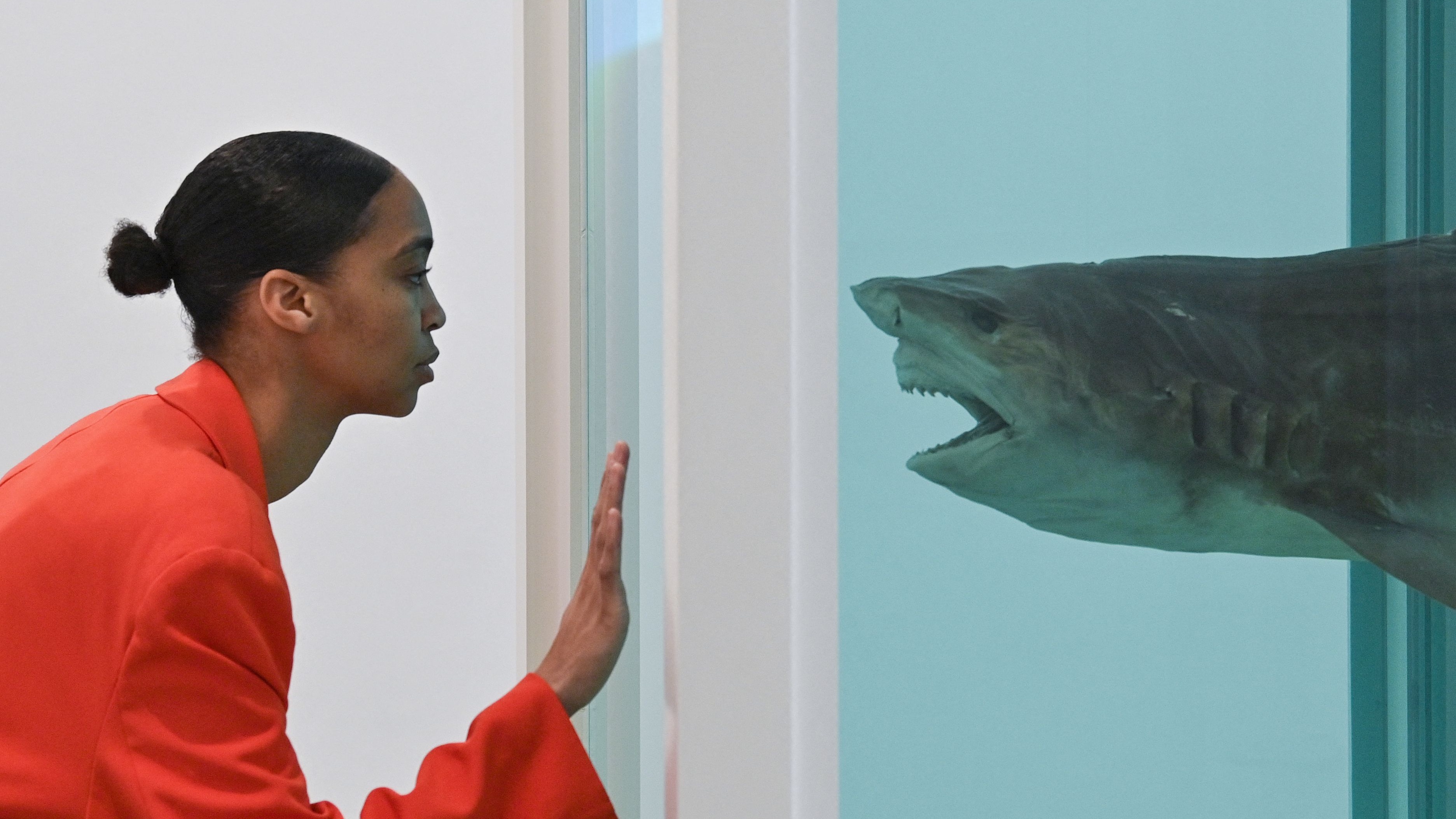The Damien Hirst formaldehyde dates row
Newspaper claims three Hirst sculptures from 2017 were pre-dated to his 1990s Turner Prize-winning days

A free daily email with the biggest news stories of the day – and the best features from TheWeek.com
You are now subscribed
Your newsletter sign-up was successful
Damien Hirst is facing accusations that three of his preserved animal sculptures were created decades later than their labels suggest.
An investigation by The Guardian found that the works – featuring animals preserved in formaldehyde – were made in 2017, despite being labelled by his company as dating from the 1990s.
The pieces under scrutiny are "Dove (1999)", a preserved dove with wings outstretched; "Cain and Abel (1994)", a pair of preserved calves; and a preserved shark, dissected into three pieces, entitled "Myth Explored, Explained, Exploded, (1993-1999)".
The Week
Escape your echo chamber. Get the facts behind the news, plus analysis from multiple perspectives.

Sign up for The Week's Free Newsletters
From our morning news briefing to a weekly Good News Newsletter, get the best of The Week delivered directly to your inbox.
From our morning news briefing to a weekly Good News Newsletter, get the best of The Week delivered directly to your inbox.
A 'date of conception'
The three works were made by Hirst's employees at his workshop in Gloucestershire and have been exhibited in recent years in Hong Kong, New York, Munich, London and Oxford as examples of work from the 1990s – his Turner Prize-winning period.
But The Guardian said it could find "no mention anywhere of the works having existed, in any form, prior to 2017". Sources familiar with the works reportedly said that each sculpture was less than a year old when first exhibited in Hong Kong, despite the impression given by the dates in their titles.
When contacted by the paper, Hirst's company Science Ltd said the date assigned to each artwork did not represent the date they were made, but rather "the date of the conception of the work".
Hirst's lawyers told the paper that while using the date of conception in the title was the artist's "usual approach" for formaldehyde works, it was not always the case.
A free daily email with the biggest news stories of the day – and the best features from TheWeek.com
"The dating of artworks, and particularly conceptual artworks, is not controlled by any industry standard," they said. "Artists are perfectly entitled to be (and often are) inconsistent in their dating of works."
A question of 'intent and transparency'
"Perhaps we should have pity" for Hirst, said art critic Jonathan Jones in The Guardian. "What artist, what person, wants to think all the good stuff, the fireworks and inventiveness, is in the past? But Hirst apparently does think that." He could "hardly confess it more clearly" than by pre-dating his formaldehyde animal sculptures to his Turner Prize-winning period.
"I was far from the only one who loved and was moved by Hirst in the 1990s," said Jones. But Hirst has not only "taken a chainsaw to that glorious past" but "leapt into truly bizarre territory", using dates that contravene all existing artistic convention. "What was he thinking?"
Blurring the lines between conception and creation has "sparked debates within the art community about the integrity of an artist's intent and the transparency of artistic production", said Artlyst. Allegations that Hirst's company instructed employees to artificially age the sculptures to create the appearance of wear and tear "have further clouded the ethical considerations surrounding the works". Hirst's lawyers denied "any suggestion that employees of Science have ever been told to 'physically age' works of art in order to falsely represent that the works are older than in fact they are", said The Guardian.
But the implications of these allegations extend beyond Hirst, said Artlyst, "raising questions about the practices of galleries, museums, and auction houses in presenting and selling contemporary art".
With no standard protocol for documenting and cataloguing artworks, institutions must rely on the information given to them by the artists and their representatives, "leaving room for discrepancies and misinformation". With public trust and credibility at stake, "stakeholders must prioritise integrity and honesty to preserve the integrity of the art market".
Sorcha Bradley is a writer at The Week and a regular on “The Week Unwrapped” podcast. She worked at The Week magazine for a year and a half before taking up her current role with the digital team, where she mostly covers UK current affairs and politics. Before joining The Week, Sorcha worked at slow-news start-up Tortoise Media. She has also written for Sky News, The Sunday Times, the London Evening Standard and Grazia magazine, among other publications. She has a master’s in newspaper journalism from City, University of London, where she specialised in political journalism.